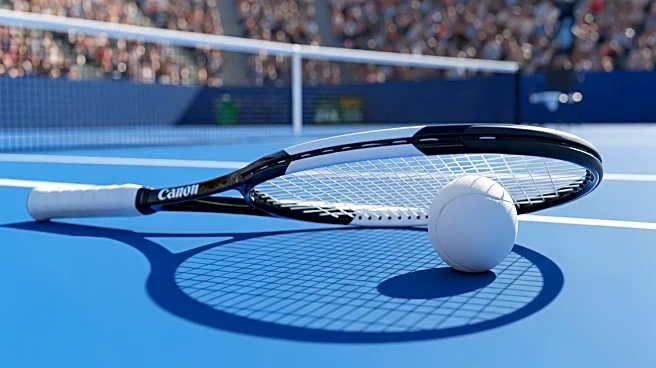What's Happening?
Naomi Osaka has advanced to the quarter-finals of the US Open after defeating Coco Gauff, marking a significant comeback in her tennis career. Osaka, who has previously won four Grand Slam titles, is set to face Karolina Muchova from the Czech Republic for a chance to reach the semi-finals. This victory comes after a period of personal challenges, including struggles with mental health and taking time off to have her first child. Osaka's return to form is notable as she has not reached this stage in a Grand Slam since her Australian Open win in 2021. Her performance against Gauff was dominant, showcasing her ability to compete at the highest level once again.
Why It's Important?
Osaka's advancement in the US Open is significant for several reasons. It marks her return to competitive tennis after a hiatus, highlighting her resilience and ability to overcome personal challenges. Her success could inspire other athletes facing similar struggles, emphasizing the importance of mental health in sports. Additionally, Osaka's presence in the tournament adds excitement and competitiveness, potentially influencing the dynamics of women's tennis. Her match against Muchova will be closely watched, as it could further solidify her comeback and impact her ranking in the sport.
What's Next?
Osaka will face Karolina Muchova in the quarter-finals, a match that could pave the way for her first Grand Slam semi-final appearance since 2021. The outcome of this match will be crucial for Osaka's career trajectory and her standing in the tennis world. Stakeholders, including sponsors and fans, will be keenly observing her performance, which could lead to increased support and opportunities. The broader tennis community will also be watching, as Osaka's return could influence the competitive landscape and inspire other players.
Beyond the Headlines
Osaka's journey back to the top of tennis highlights broader themes of resilience and the importance of mental health support for athletes. Her story may encourage sports organizations to prioritize mental health resources and support systems. Additionally, Osaka's comeback could influence cultural perceptions of athletes taking breaks for personal reasons, potentially leading to more acceptance and understanding within the sports industry.










